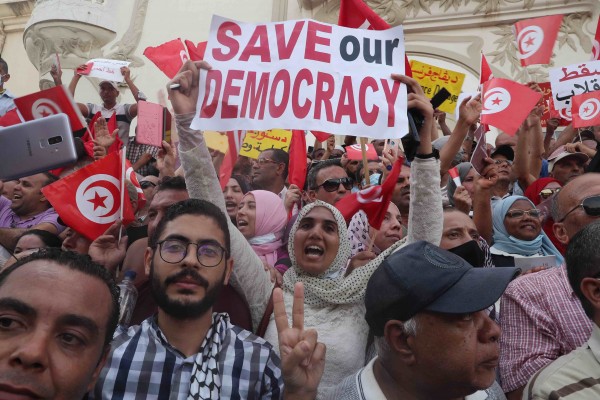The International Press Institute (IPI) strongly condemns the kidnapping and beating of journalist Slim Boukhdhir on Wednesday night in Tunis and the arrest on Thursday morning of renowned journalist and government critic Taoufik Ben Brik.
Ben Brik had previously endured detentions and been prevented from travelling out of Tunisia. He was arrested for allegedly attacking a woman. Local sources told IPI that he remains in detention and is scheduled to appear before a judge tomorrow.
Slim Boukhdhir was kidnapped by four men in civilian clothing while on his way home. After forcing him into a car, the attackers brought Boukhdhir to the largest park in Tunis and beat him severely, threatening him with a knife and warning him that if he did not stay away from “that woman,” he would be killed.
A passerby helped Boukhdhir into a taxi, which he took to the home of Naziha Rjiba, vice president of the Tunis-based Observatory for the Freedom of the Press, Publishing and Creation (OLPEC) and an editor of the online magazine Kalima.
Slim appeared almost naked, in jogging trousers, Rjiba told IPI. He had obviously been beaten and was covered in bruises. Boukhdhir told Rjiba that four men, who he believed to be plainclothes police officers, put him in a car and took him to Belvedere Park, where they beat him and took away his money, mobile phone and identification.
Earlier in the afternoon, Boukhdhir had participated in an interview with the BBC about President Ben Ali’s re-election to a fifth term earlier this week. According to Rjiba, he also spoke about a recent campaign to intimidate journalists and the use of criminal defamation laws. He also mentioned the wife of Ben Ali.
“Criticizing Ben Ali or his family is the most dangerous thing you can do in Tunisia,” Rjiba told IPI.
“IPI is shocked and appalled by the brutal assault on Slim Boukhdhir, who has been targeted for his independent journalism and critical voice. We wish Slim a speedy recovery,” said IPI Director David Dadge. “The Tunisian government has an obligation to protect rather than attack its citizens, and must pursue and bring to justice those responsible for this repulsive crime.”
An outspoken journalist, Boukhdhir has been denied a passport since 2003, in violation of Tunisian and international law. After beginning a hunger strike in protest in November 2007, Boukhdhir was arrested and jailed for insulting a public official, refusing to produce identification and “breach of accepted standards of good behaviour,” charges that were widely discredited as baseless.
Since his early release from prison in July 2008, Boukhdhir had continually been threatened and intimidated for continuing his work.
This assault is the latest in a series of cases surrounding Tunisia’s recent presidential elections in which journalists and activists have received death threats, been harassed and warned to keep quiet.


